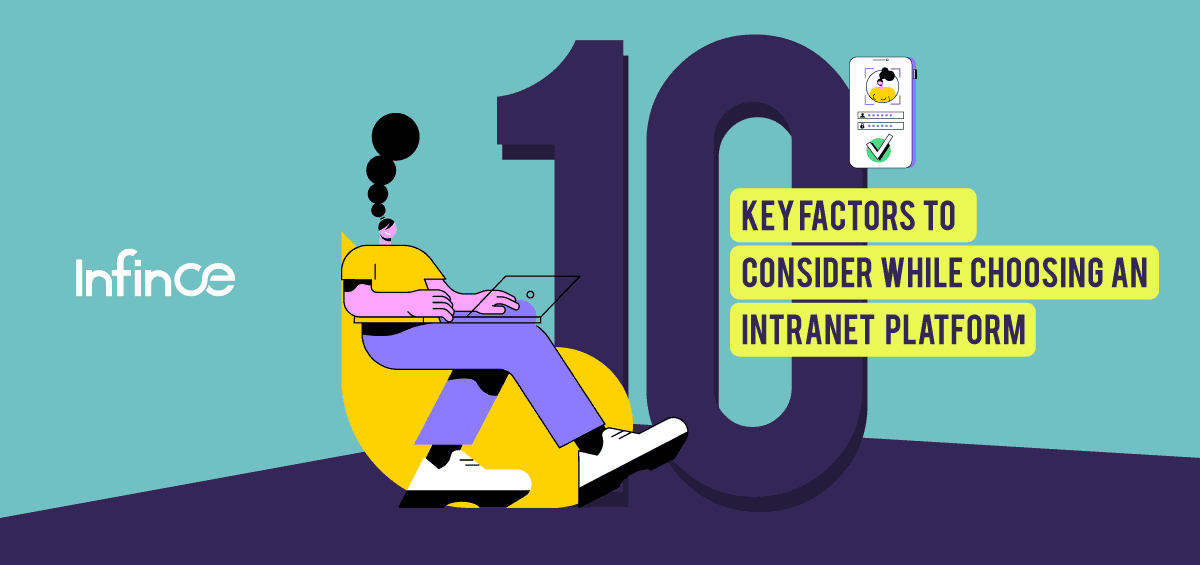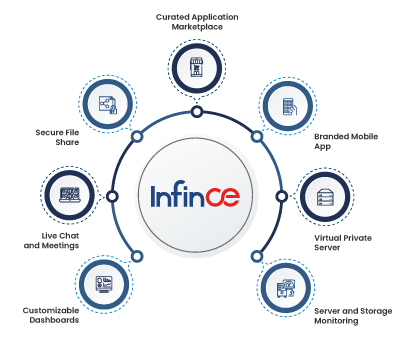Cloud computing is one of the most disruptive technologies in today’s digitally forward era. It has quickly become a staple for businesses, which look to adopt digital transformation strategies to stay competitive in the market. Reports even say that more than 91% of enterprises use cloud computing in one way or another. However, there is more to migrating to the cloud than you may think of.
The most important decision to make when planning to move to the cloud is choosing between – the public cloud and the private cloud. There are also cloud service providers that can ease the move and manage your cloud data and resources for you. Yet before you outsource your company’s requirements to a cloud services vendor, you should have a good understanding of what distinguishes public cloud from private cloud, and which one would be the right fit for your company.
Read more: 5 Ways an Integrated Cloud Platform is Beneficial for Your Small Business
What is a Public Cloud?
The public cloud is the most common type of cloud computing, wherein the hosting service will be managing the cloud environment. The infrastructure and resources will be then shared with the customers who sign up for the public cloud service. Users can access these resources for data storage and managing other workloads as required. This can be the ideal choice for enterprises that are getting started with cloud computing and want to experience its benefits firsthand.
A public cloud environment gives you access to a host of resources without having to manage any form of an in-house data center. It can be used for a variety of business purposes, ranging from CRM software management to email applications. You can also migrate workloads and software that demand heavier computing and storage capabilities to the public cloud to run them without any hassle. What’s more, you also get the option to scale the resources as needed to manage the growing volume of data.
Pros and Cons of Public Cloud
The most evident benefit of the public cloud is that it allows you to save significantly on operational expenses. That is because you do not have to manage or maintain the IT resources at all. Besides, you can also use the public cloud for development and testing or big data projects, so that it does not affect the current workflow of your organization. Apart from that, the public cloud is also very affordable and can be opted for by any business irrespective of which industry they belong to.
Most of the public cloud service providers also provide different pricing plans, which can be a great way to decide which option suits your budget and company needs. At the same time, deploying the public cloud is also very simple and does not require you to hire an IT team to manage your cloud requirements. As the public cloud is equipped to handle heavy workloads, you can also expect full-time availability without having to face any downtime or single points of failure.
Public cloud also comes with robust cybersecurity measures to avoid data breaches and potential hacking attacks, which ensures that your business data and applications are secure. However, there are some downsides to choosing the public cloud as well. For instance, signing up for the public cloud does not mean that own the infrastructure. In other words, you will have little control over the policies and practices of the cloud provider to manage your company data and applications. This may not be ideal for mission-critical workloads and sensitive data.
Another disadvantage of the public cloud is that you will have to allocate a monthly budget for maintaining the IT infrastructure. This can add up in the long run and lead to unnecessary expenses if your company’s data and storage needs do not change over time. Moreover, there is also a risk of unauthorized access, and even though the public cloud offers a good level of security, it is often inferior to what the private cloud can provide.
Read more: 3 Strong Reasons for Your Business to Embrace Cloud-based IT Services
What is a Private Cloud?
Private cloud refers to having a dedicated single-tenant cloud environment for managing your business workloads and data. Multinational and large-scale enterprises go for a private cloud environment because it offers reliable security and can be configured as per your company’s security regulations. In addition to that, choosing the private cloud also ensures that your data and applications will be readily available for easy access.
In a private cloud infrastructure, the hardware will entirely depend upon your organizational needs. Public cloud providers also offer top-notch services to customers to suit their varied needs. This can range from round-the-clock availability to faster data speeds and a highly secure cloud environment. What’s more, you can also customize your cloud configurations to meet the IT needs of your business with the private cloud. That is why more than 72% of enterprises globally manage their data and applications on the private cloud.
Pros and Cons of Private Cloud
The most striking benefit of choosing the private cloud is high-end efficiency. As it is a dedicated solution, you get to analyze and analyze the performance of your cloud infrastructure and scale it as needed. Besides, having your own resources and hardware also guarantees consistent and faster access speeds than what a public cloud environment can provide.
Another noteworthy merit of the private cloud is that you do not have to share any resources with anyone. This not only means you can tailor your cloud environment to your needs but also assures you enhanced security. That can be fundamental for companies that are required to comply with various regulatory requirements, especially when doing business overseas. The only drawback to choosing the private cloud is that the upfront costs can be a bit too high. However, InfinCE brings enterprises a feasible and cost-effective cloud solution with power-packed features and productivity tools.
Read more: Top Cloud Trends Your Enterprise Should Pursue to Succeed in 2021 and Beyond!
Is Private Cloud Better than Public Cloud?
A recent study found that operating a private cloud environment is often cheaper than managing the data and resources on the public cloud. Even though the upfront premiums can be higher for having a private cloud, it is more cost-effective than paying monthly for the public cloud server. However, you should realize that low costs are not the only driving factor for choosing a private cloud. It also allows you to meet the regulatory demands in locations that require the data to be managed in the local geography.
Private cloud also allows you to manage all the required IT resources in a single, on-site data center. This ensures the lowest possible latency by reducing round-trip network times significantly. Apart from that, adopting the private cloud is also seen to be more efficient for utilizing automation, flexible licensing arrangements, budgetary management tools, and capacity planning. Yet again, as every company’s needs are different, you should weigh in all the pros and cons of the cloud service against your business requirements before choosing the cloud deployment model.
With InfinCE, however, you can rest assure a seamless transition to secured cloud infrastructure. Connect with us today!





